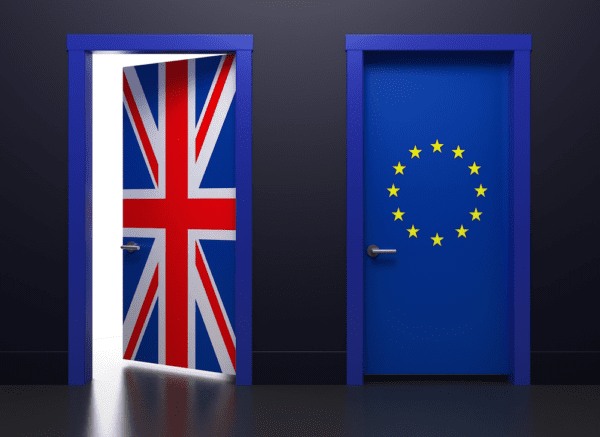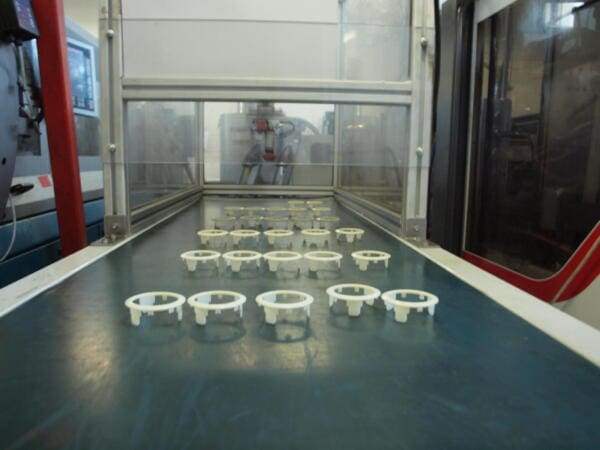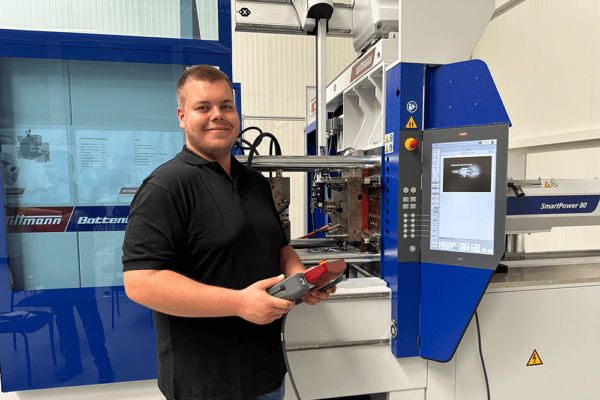
Brexit – Should we Export, or Stop Importing?
By Simon Anderson – MD of LVS Small Plastic Parts
Like most SME’s, the Brexit vote came as a shock to LVS Small Plastic Parts last year. As part of the larger business community, we felt that a status quo would be the best outcome for the manufacturing sector. Our own business being so heavily aligned to the automotive sector helped to reinforce this opinion.
Since the vote, the rhetoric coming out of central government has been that “Britain is open for business”, that “we need to make our way in the world”, and that “we need to increase our exports”. What it means for me is opportunity.
I sit on a committee within the SMMT that reports directly into the Business Department in Whitehall. The figures quoted for the value of UK exports and what the automotive industry itself is worth, are vast!
The figure I prefer to concentrate on, is the amount that the OEM’s identify they buy from outside of the UK, that they would prefer to buy from the UK. This figure runs into £billions! Some of the more specialised industries are no longer available within the UK, but as a plastic injection moulder, LVS can certainly play its part in reducing this figure.
It is to this opportunity that we decided to align our primary business strategy. Reshoring has been around since Lehman Brothers went in 2008. Business lost control and ultimately felt that they needed to source external production closer to plant, particularly as the perceived savings were lost when all factors were correctly accounted for. A large part of our growth curve since that point (500%) has been due to UK companies wanting to source more product locally.
Since the Brexit vote, we have seen a dramatic further acceleration in demand for reshored product.
Why? Well forex costs are now a main driver, the devaluation of Sterling having added massive increased costs to companies’ P&L accounts.
So while central government is telling the business community to get out and export more, I have decided to look slightly closer to home, to understand which companies around us are looking to bring their cost basis back under control.
Particular focus varies, but other considerations include:
- Much improved lead-times
- Reduced stock holding
- Faster routes to market
- Rapid implementation of engineering changes.
To illustrate the type of opportunities available, we currently have two large projects in progress.
Project One. The first project involves a German automotive company that has a global footprint. Its UK plant currently receives all its plastic mouldings from either Germany or Eastern Europe, and the contract states that they must fill the lorry to get the correct cost level, regardless of whether they need a ‘lorry full’ or not.
Our solution is simple. We will offer a stable cost (no exchange rate fluctuations), and we will use our fleet of vehicles to deliver product ‘line side’ twice daily on flow racks.
As well as almost eliminating all stock holding for the client, product quality will improve, as they currently have an ‘accepted’ level of fall out due to transportation and the very long storage time for these parts. Ultimately we will be delivering:
- A cost saving per part
- Reduced inventory levels
- Improved quality of product
- A speed to resolve engineering changes that they cannot currently achieve.
Project Two. The second project is challenging as it stems from the Far East. The client is the UK market leader in their sector and the forex issues has hit this business hard. The project has added complexity, as historically we have not been competitive with these particular parts due to the amount of labour associated with their assembly.
Our solution is to use our expertise to ‘engineer out’ large portions of the labour and to automate other processes to ensure that our productivity levels outweigh the low labour rates of the Far East.
As this client supplies goods into ‘the sheds’ using dynamic scheduling, LVS will be able to help them to actively manage changes to client demands without them having to either turn down orders or have warehouses full of imported goods. In effect, we can move them from a policy of ‘just in case’ to ‘just in time’.
So in conclusion, my message to UK Plc is simple. While wanting to be outwardly looking, don’t forget to consider what’s on your doorstep first. Yes, we can reduce our balance of payments by working bloody hard to export our products and services, but we can also improve our GDP levels by having more products manufactured here in the UK.
There are plenty of other Injection Moulding companies and other manufacturing SME’s similar to LVS that we should be supporting. These enterprising companies are both willing and well-equipped to provide a solution to the growing number of businesses that want to source locally.
To discuss your injection moulding and plastic manufacturing requirements call or email us on:
Tel: 01952 290 666
Email: sales@small-plastic-parts.co.uk
Website: www.small-plastic-parts.co.uk






